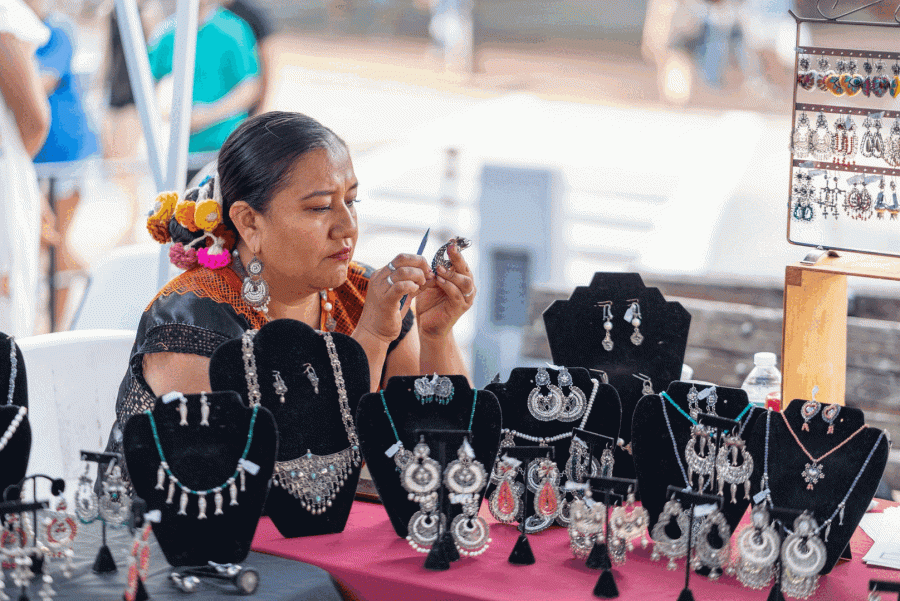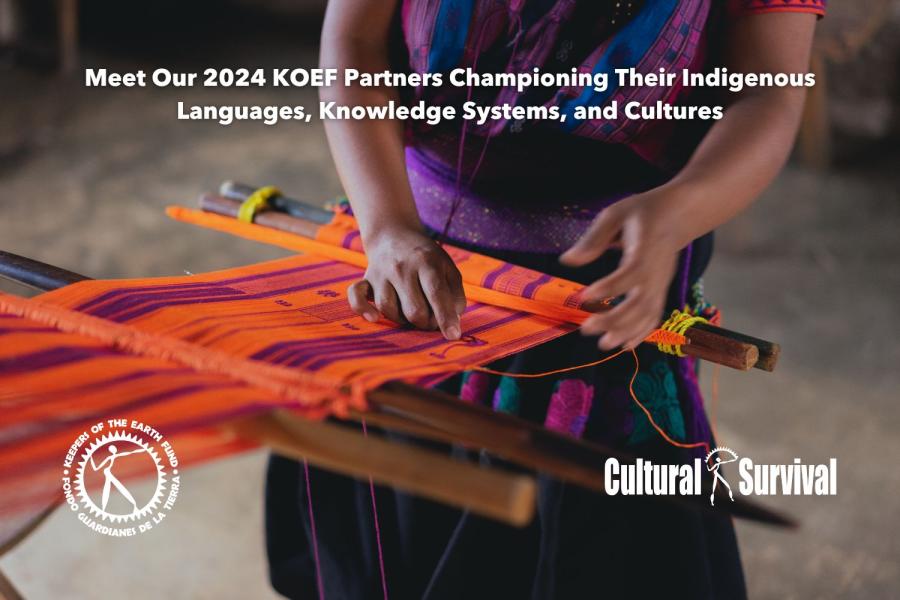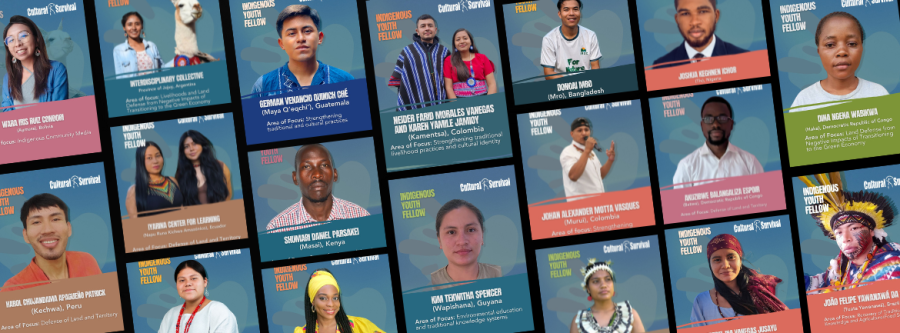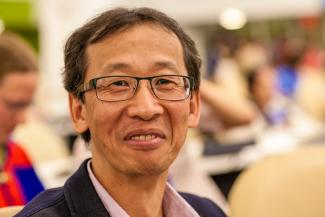
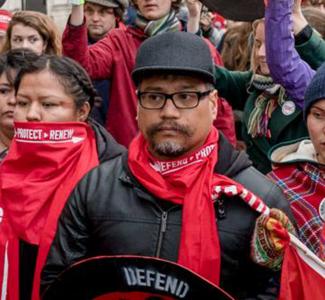
Rodion Sulyandziga (Udege, from Krasnyyar, Primorski Kray, Russian Far East)
Director of the Centre for the Support of Indigenous Peoples of the North (CSIPN), Russia, co-chair of the International Indigenous Peoples Forum on Climate Change (IIPFCC)
We are working for many issues related to Indigenous Peoples’ rights and democracy, but specifically when it comes to climate change it’s a threat and a challenge we are facing. That is why we are here at COP 21, because it’s getting more and more critical. We must be visible and vocal in this global negotiation.
All Indigenous Peoples’ lives have included adaptation to worsening conditions, to climate change. It’s a long history, but it’s becoming more and more unpredictable. This situation also affects traditional knowledge. That is why we have to talk about innovations in regards to the practice of traditional knowledge, to become more adaptive to the rapid changes. Traditional people still provide the knowledge to support our development, but we need to adapt for survival in order to move forward.
It’s this unpredictability that impacts traditional activities like hunting, fishing, and traditional food security. It also causes more and more environmental disasters like forest fires and flooding that increase year by year.
All of us came to Paris with the expectation and hope that we can reach a new global agreement. We are facing lots of challenges, and that is why we have to strengthen our coordination, our global solidarity, because some of the parties still oppose the approach by Indigenous Peoples— the human rights approach.
I am satisfied [with the] Paris agreement because it will be translated into national plans of action, into national strategies. It’s not ideal, but the Parties came to political agreement at the end. The Indigenous Peoples’ voice, agenda, and position was strong and visible. Some key messages and demands are reflected in the final document. The next step is to follow up Paris and strengthen the Indigenous Peoples’ movement on both the national and international levels.
Teana Tuiono (Māori)
Aotearoa/Cook Islands
Centuries before Christopher Columbus got lost in the Caribbean, our people sailing the Pacific found islands they made home. Their skill was based on knowledge of the stars, sailing directions, and reading the waves and clouds to determine currents and predict weather. I like to think that we, the descendants of those early navigators, can draw on their prowess and commitment as we navigate the myriad issues of climate change.
Our tipuna could read the environment; they observed the cycles of the moon, the sun and stars and how they influenced living things in the environment. They revised this knowledge over centuries, passing it down through generations. Anything that impacts the environment impacts these Indigenous knowledge systems.
Half of the population in the Pacific lives within 1.5 kilometers of the sea. Few Pacific people will be untouched by climate change. Our agriculture, coastal systems, ecosystems, water resources, and economy are all at risk as sea levels rise and tropical storms intensify.
Last year when I visited relatives in one of the outer islands, they talked about how the roof of their house just blew right off during Cyclone Pam. They shared their fear and anxiety of huddling beneath what was left of their home as the winds continued to blow. These events will only become more frequent as weather patterns become more intense over time.
Adrift in a rising sea of political apathy and corporate selfinterest, at times it feels like we are holding back the rising tide with a bucket. When these areas are opened up to extractive industries like deep sea oil drilling, this impacts not only our rights but our knowledge and cultural systems.
For me, the intersection of the aspirations of Pacific nations and Indigenous Peoples is a dynamic space where we can build solidarity in defense of our homelands. Without the engagement of civil societies, Indigenous Peoples’ organizations, and people’s movements, we perpetuate anti-democratic processes. This is exactly what those that perpetuate fear and terror want.
In terms of the COP 21 outcomes, the resolutions are 20 years too late. We cannot wait while States and corporations continue to play ping pong with Papatūānuku (Mother Earth). If I have any faith, it is in the Indigenous activists on the streets and in our communities who collaborate with our sisters and brothers in the UN processes. I believe in Indigenous Peoples’ movements in order to make positive change towards climate justice.
Sulyandziga photo courtesy of UNPFII/Broddi Sigurdarson.
Tuiono photo courtesy of Allan Lissner/IEN.
